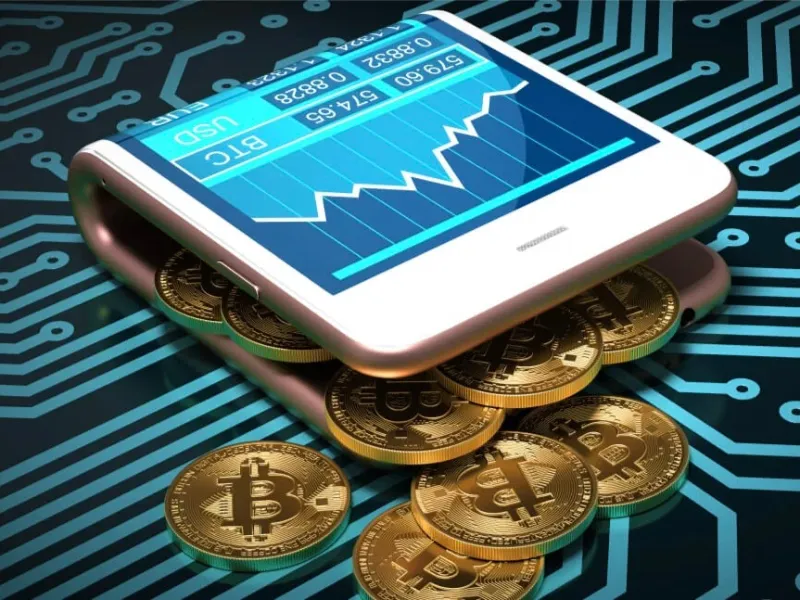- Crypto wallets are essential tools for securely managing and transacting digital assets, functioning as key management systems for public and private blockchain interactions.
- They come in two main types—hot wallets, which are connected to the internet for convenience, and cold wallets, which provide offline security for long-term asset storage.
As cryptocurrency adoption continues to rise globally, the tools that make managing digital assets possible have become indispensable. One of the foundational components of the cryptocurrency ecosystem is the crypto wallet, a digital or physical device used to store and manage cryptocurrency keys securely. This article provides a deep dive into crypto wallets, covering their purpose, functionality, types, and security considerations, while incorporating expert perspectives to bring clarity to this complex topic.
Also read: Over 400 million crypto wallets hold non-zero balance: Chainalysis
Also read: Can we trust crypto wallets to be anonymous?
Understanding crypto wallets
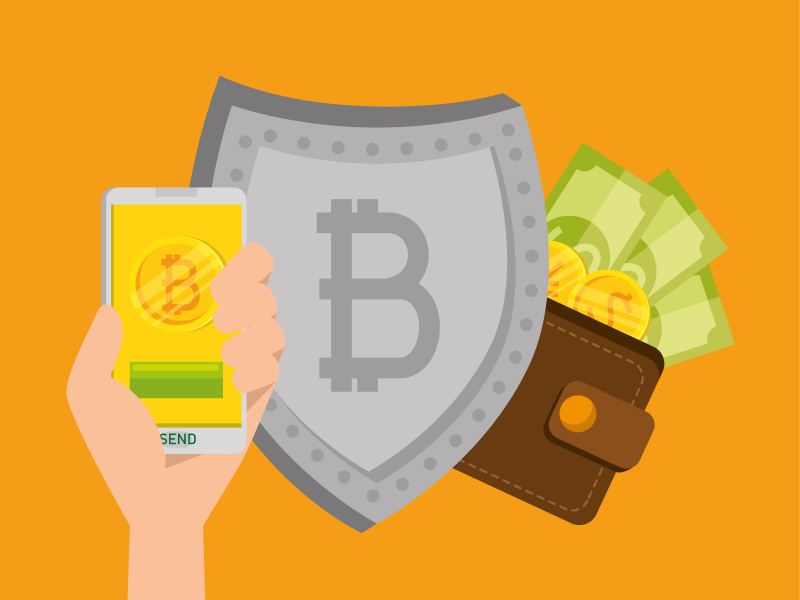
A crypto wallet is much more than a digital container for cryptocurrencies like Bitcoin or Ethereum. It functions as a key management system, allowing users to send, receive, and store digital assets by interacting with the blockchain.
How do crypto wallets work?
Every cryptocurrency transaction occurs on a blockchain—a decentralized digital ledger. A crypto wallet interacts with this ledger through:
- Public keys: These act as your wallet’s address, similar to a bank account number, which others can use to send you funds.
- Private keys: These are unique, encrypted codes that grant you access to your wallet and authorize transactions. Keeping your private key secure is critical; anyone with access to it can control your funds.
When you initiate a transaction, your wallet uses your private key to sign it cryptographically. This signed transaction is broadcast to the blockchain network, where miners or validators confirm and process it.
“Understanding how crypto wallets work is the first step to secure asset management,” says Andreas Antonopoulos, a leading Bitcoin advocate and author of Mastering Bitcoin. “They don’t store your coins but serve as the gateway to accessing your funds on the blockchain.”
Understanding how crypto wallets work is the first step to secure asset management
Andreas Antonopoulos, a leading Bitcoin advocate
Types of crypto wallets
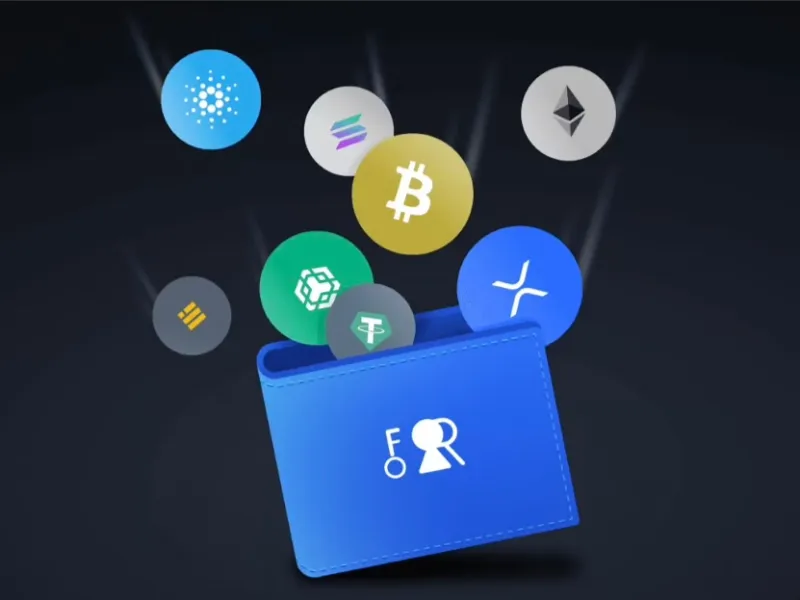
Crypto wallets are broadly divided into hot wallets and cold wallets, each catering to specific user needs.
Hot wallets: Internet-connected convenience
Hot wallets are always connected to the internet, offering ease of access but potentially higher vulnerability to cyber threats.
- Mobile wallets: Apps like Trust Wallet or MetaMask that allow users to manage assets on smartphones.
- Desktop wallets: Software such as Electrum or Exodus that is downloaded onto computers.
- Web wallets: Hosted by exchanges like Coinbase, these wallets are accessible via browsers.
While hot wallets are user-friendly and ideal for frequent transactions, experts warn about security risks. “Hot wallets are like carrying cash in your pocket,” explains cybersecurity expert Brian Krebs. “Convenient but prone to theft if you’re not cautious.”
Cold wallets: Offline security
Cold wallets store private keys offline, offering enhanced security against hacking and phishing.
- Hardware wallets: Devices such as Ledger Nano X or Trezor Model T are the gold standard for crypto security, storing private keys on physical hardware.
- Paper wallets: A printed sheet containing private and public keys, often accompanied by QR codes for easy scanning.
While cold wallets provide unparalleled security, they require careful handling. “Cold storage solutions are best suited for long-term holders who prioritize security over convenience,” advises Michael J. Casey, chair of CoinDesk’s advisory board.
Cold storage solutions are best suited for long-term holders who prioritize security over convenience.
Michael J. Casey, chair of CoinDesk’s advisory board
Why use a crypto wallet?
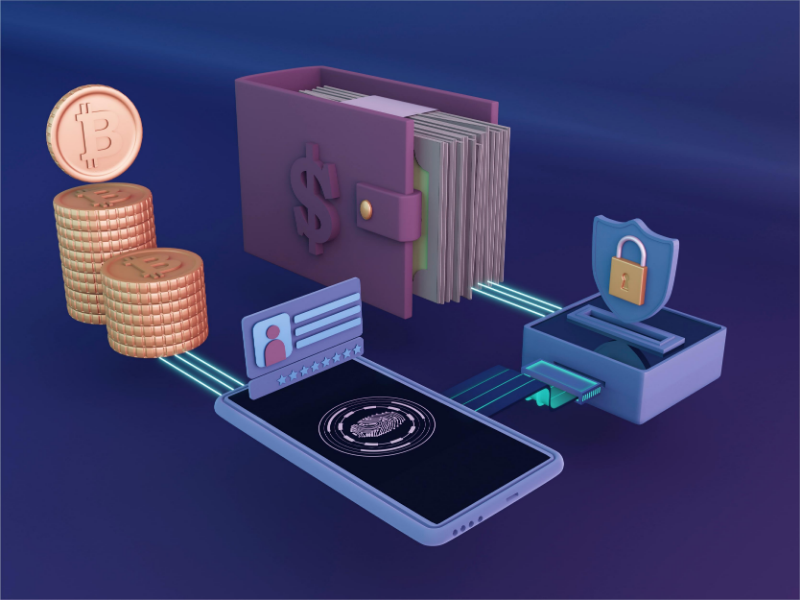
Owning a crypto wallet ensures autonomy over your digital assets, eliminating reliance on third-party platforms like exchanges. Here’s why they’re essential:
Complete ownership
With a crypto wallet, you have full control over your private keys, which means complete ownership of your cryptocurrency. Unlike funds stored in traditional bank accounts or exchange wallets, where third-party platforms hold the keys, crypto wallets empower users with financial sovereignty.
“Not your keys, not your coins,” explains Andreas Antonopoulos, a prominent Bitcoin advocate. “If you don’t control your private keys, you don’t truly own your cryptocurrency. Exchanges are custodians; they hold the keys and thus control the assets.”
This level of ownership allows users to transact freely without intermediary restrictions, ensuring that no organization can freeze or access your funds without consent. Financial autonomy is particularly vital in regions with volatile banking systems or strict capital controls.
As Vitalik Buterin, Ethereum’s co-founder, notes, “Crypto wallets symbolize the ethos of decentralization by allowing users to bypass traditional financial gatekeepers, promoting a more inclusive financial system.”
Enhanced security
Crypto wallets, especially cold wallets, are designed with robust security features to protect users from cyber threats. Cold wallets, such as hardware wallets, store private keys offline, making them virtually immune to hacks. Even hot wallets, when used carefully, can offer secure ways to manage assets.
Michael Perklin, a leading blockchain security expert, highlights, “Crypto wallets equipped with features like multi-signature authentication and encryption significantly reduce the risk of unauthorized access.”
Furthermore, wallet users are shielded from systemic risks, such as those posed by centralized exchanges, which have suffered from high-profile hacks in the past. The 2014 Mt. Gox hack and the 2022 FTX collapse underline the importance of using secure wallets.
Nick Szabo, a cryptographer and pioneer in digital contracts, adds, “A secure crypto wallet is your fortress in the digital world. The stronger its security measures, the safer your assets.”

Accessibility
Crypto wallets provide a seamless way for users to send, receive, and manage digital assets without technical barriers. Mobile wallets, for instance, are designed for convenience, allowing users to transact on the go, while desktop wallets offer more comprehensive management features.
“Ease of access is a crucial factor for mass adoption,” says Charles Hoskinson, the founder of Cardano. “Crypto wallets bridge the gap between blockchain technology and everyday users by providing intuitive tools for asset management.”
Additionally, the global accessibility of wallets means that users in underserved regions can participate in the cryptocurrency economy without the need for traditional banking services. With a smartphone and an internet connection, anyone can join the blockchain revolution.
Brad Garlinghouse, CEO of Ripple, states, “Crypto wallets are democratizing finance by enabling people in remote areas to engage in global markets, breaking down geographical and economic barriers.”
Privacy
Crypto wallets prioritize user privacy by enabling transactions without requiring extensive personal information. Unlike traditional banks or payment platforms, setting up a wallet often requires nothing more than downloading software or purchasing a hardware device.
Edward Snowden, a privacy advocate and whistleblower, comments, “Cryptocurrency and wallets offer individuals a way to maintain financial privacy in an increasingly intrusive digital age.”
By keeping personal information separate from financial transactions, wallets provide a layer of anonymity that is not possible with traditional banking systems. This anonymity is critical for users who prioritize privacy or live in countries where financial surveillance is pervasive.
“Privacy isn’t just a feature—it’s a fundamental right,” emphasizes Zooko Wilcox-O’Hearn, creator of Zcash. “Crypto wallets are powerful tools for protecting that right in the digital financial landscape.”
Cryptocurrency and wallets offer individuals a way to maintain financial privacy in an increasingly intrusive digital age.
Edward Snowden, a privacy advocate and whistleblower
How to choose the right crypto wallet?
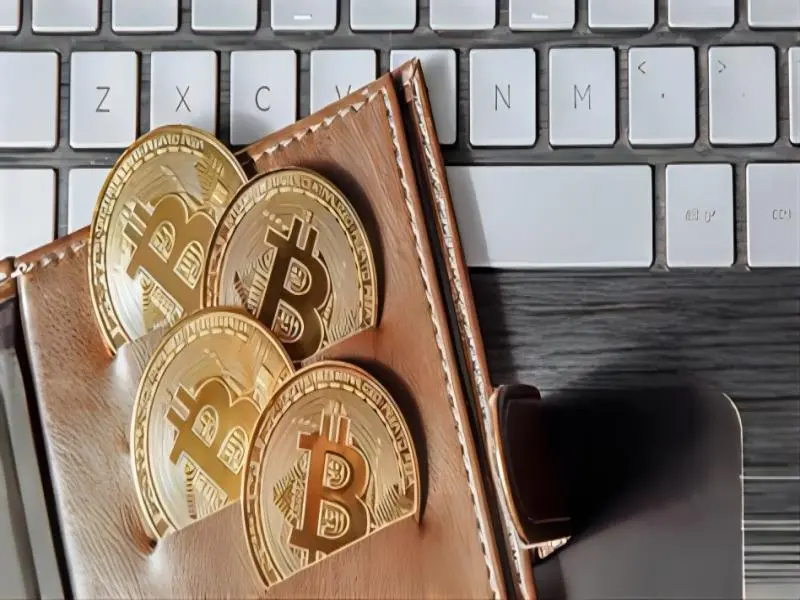
Selecting a crypto wallet depends on your specific needs, including the type of assets you hold and your transaction frequency.
Key factors to consider
- Security features: Look for wallets with two-factor authentication (2FA), password protection, and encryption.
- Supported cryptocurrencies: Ensure the wallet supports the coins and tokens you plan to hold.
- Ease of use: Beginners may prefer wallets with intuitive interfaces, such as Exodus.
- Integration capabilities: Advanced users may seek wallets compatible with decentralized applications (dApps) and DeFi protocols.
Popular wallets and their features
- Ledger Nano X: Known for its robust security and multi-currency support.
- MetaMask: A browser-based wallet tailored for Ethereum and DeFi users.
- Trust wallet: Mobile-friendly with support for staking and NFTs.
- Exodus: Offers a sleek interface and integrated exchange functionality.
Security best practices for crypto wallets
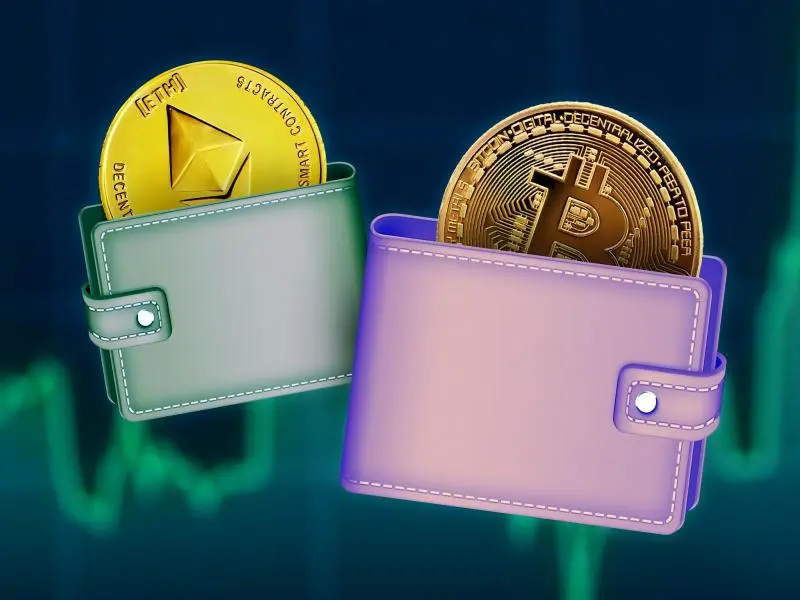
Securing your wallet is paramount to protecting your digital assets. Follow these guidelines to minimize risks:
Backup your wallet
When setting up a wallet, you’ll receive a recovery phrase—a series of 12–24 words. Store this offline in a secure location, such as a safe or encrypted USB drive.
Enable two-factor authentication (2FA)
Adding an extra layer of security makes it harder for unauthorized users to access your wallet.
Beware of phishing scams
Always verify the authenticity of websites and links before entering your wallet details.
Regular software updates
Keeping your wallet software up-to-date ensures you benefit from the latest security patches.
Avoid public Wi-Fi
Using unsecured networks can expose your wallet to cyberattacks.
“Security begins with the user,” emphasizes Nick Szabo, a cryptography pioneer. “Your assets are only as safe as the precautions you take.”
Security begins with the user. Your assets are only as safe as the precautions you take.
Nick Szabo, a cryptography pioneer
Crypto wallet vs. Exchange wallet: What’s the difference?
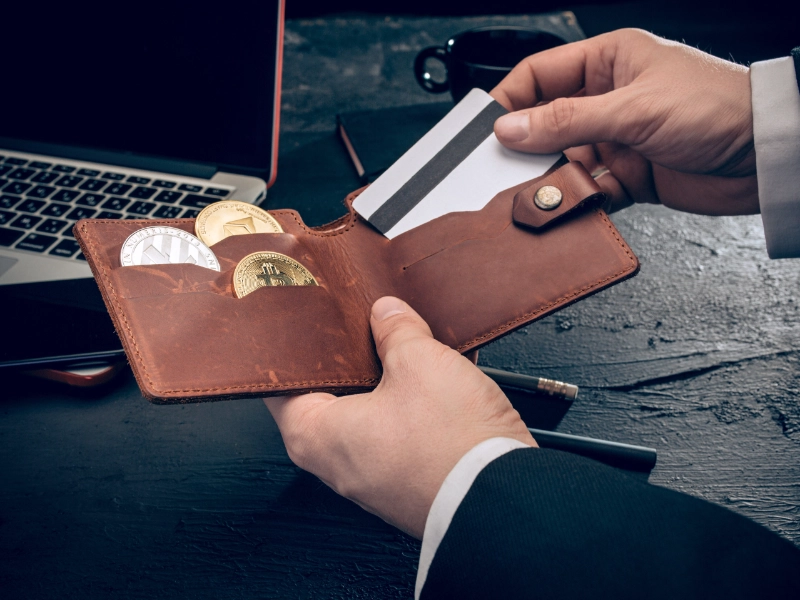
A key decision for cryptocurrency holders is whether to use a private crypto wallet or an exchange-provided wallet.
Crypto wallets
- You control the private keys, ensuring full ownership of your funds.
- Offer more robust security, especially with cold wallets.
- Allow for greater flexibility in interacting with DeFi and NFTs.
Exchange wallets
- Provided by platforms like Binance or Coinbase.
- Easy to set up but reliant on the exchange’s security protocols.
- Suitable for beginners or those who trade frequently.
Experts generally advise transferring significant holdings to private wallets. “Exchanges are great for trading, but long-term storage is best kept in wallets you control,” notes Binance CEO Changpeng Zhao.
Exchanges are great for trading, but long-term storage is best kept in wallets you control.
Changpeng Zhao, CEO of Binance
Real-life risks and how to avoid them
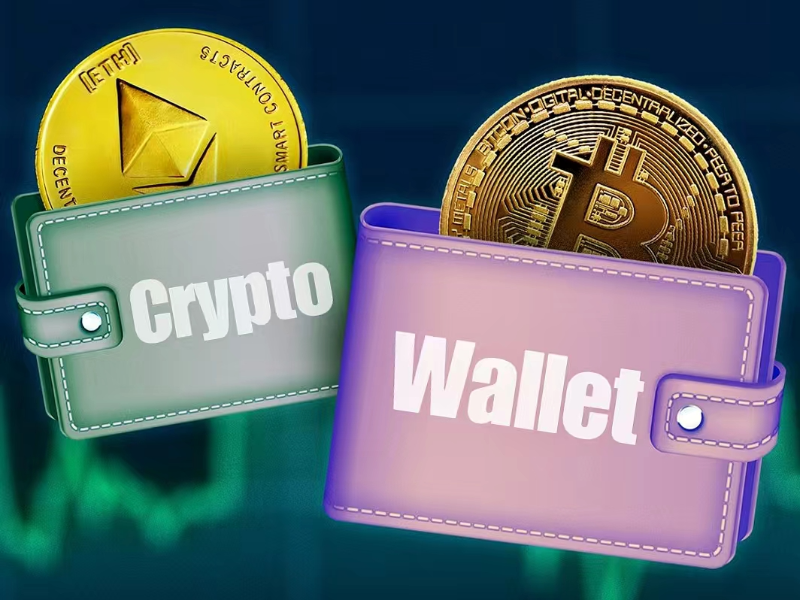
Several high-profile incidents highlight the importance of wallet security.
The Mt. Gox hack
In 2014, the cryptocurrency exchange Mt. Gox was hacked, resulting in the loss of 850,000 BTC. Many users relied on the platform’s wallet services, losing access to their funds permanently.
The importance of self-custody
Cases like this underscore the mantra: “Not your keys, not your coins.” By using a private wallet, you retain control over your assets, reducing the risk of third-party mismanagement.
Future trends in crypto wallets
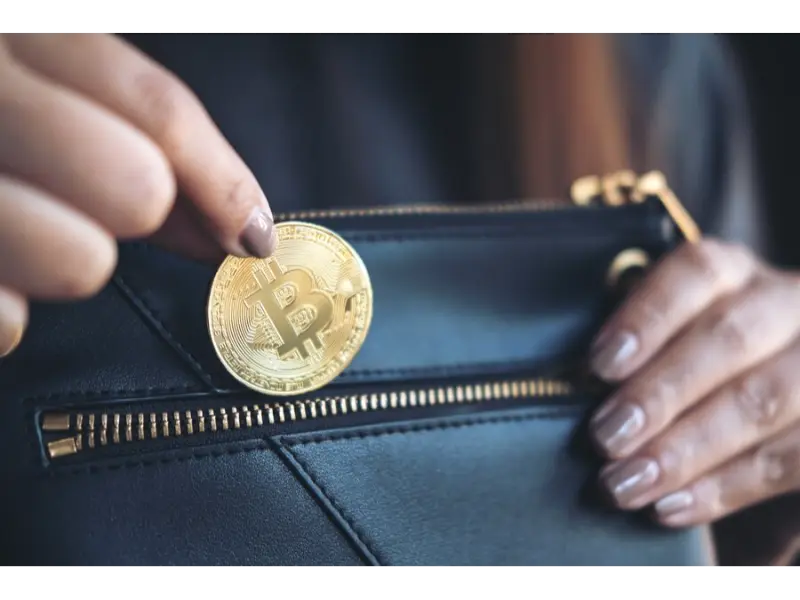
The world of crypto wallets is evolving rapidly, driven by technological advancements and user demands.
- DeFi integration: Wallets increasingly support decentralized finance features, enabling users to lend, borrow, and stake directly.
- NFT functionality: With the rise of non-fungible tokens, wallets like MetaMask and Trust Wallet now include NFT management tools.
- Biometric security: Advanced wallets are integrating fingerprint and facial recognition to enhance accessibility and security.
- Quantum-resistant encryption: To future-proof against quantum computing threats, developers are exploring next-generation encryption methods.
“Wallets are becoming more than just storage solutions—they’re turning into all-in-one financial platforms,” says Vitalik Buterin, Ethereum’s co-founder.
FAQ
A crypto wallet is a tool that allows you to securely store, send, and receive cryptocurrency. It manages your private keys, giving you control over your digital assets. Without a wallet, you cannot directly access or safeguard your cryptocurrencies.
Hot wallets are connected to the internet and are convenient for frequent transactions, but they are more vulnerable to cyberattacks. Cold wallets are offline storage options, such as hardware wallets, offering maximum security for long-term holding.
Crypto wallets are generally safe, but their security depends on the type and how you use them. Hardware wallets and wallets with advanced security features like multi-signature authentication are highly secure. However, users must safeguard their private keys and be cautious of phishing scams.
Yes, many modern wallets are multi-currency wallets, meaning they support various cryptocurrencies on different blockchain networks. Always check the wallet’s compatibility with the specific coins you intend to store.
If you lose your private keys, you may lose access to your cryptocurrency permanently. Most wallets provide recovery phrases (seed phrases) that can help restore access. It’s crucial to store these phrases in a secure and accessible place.

